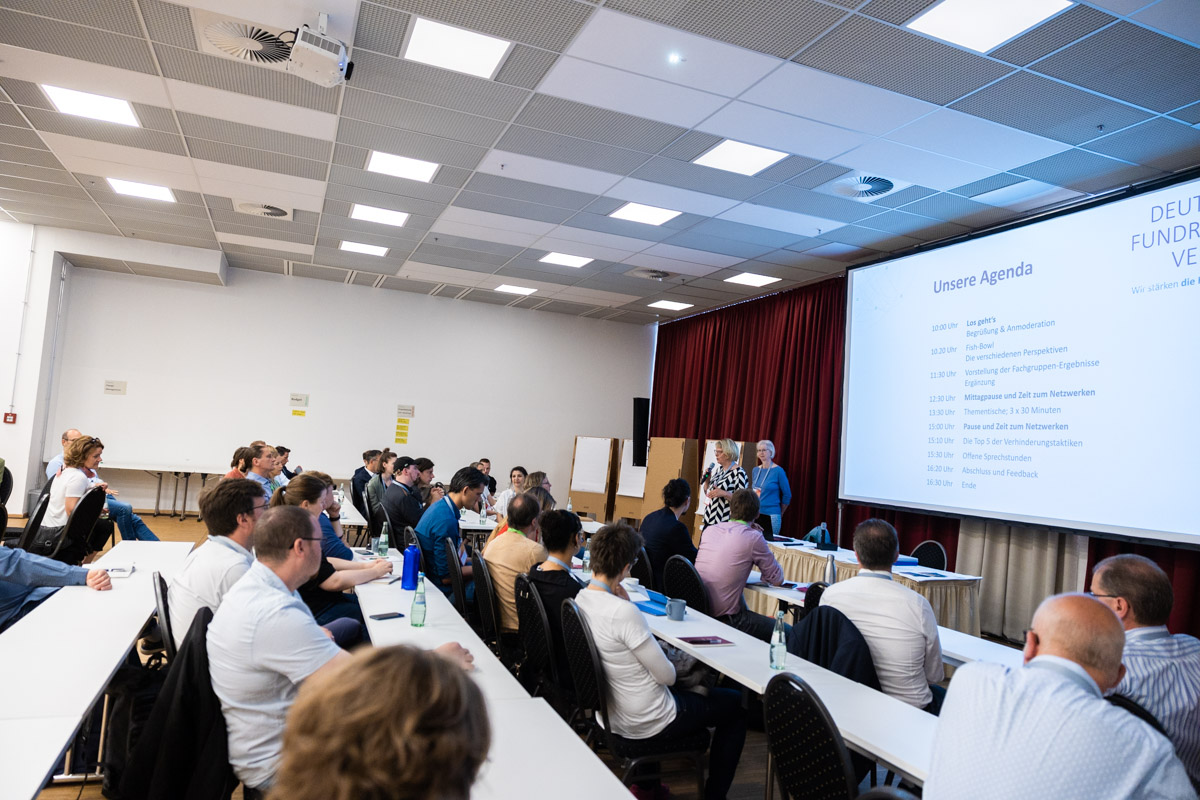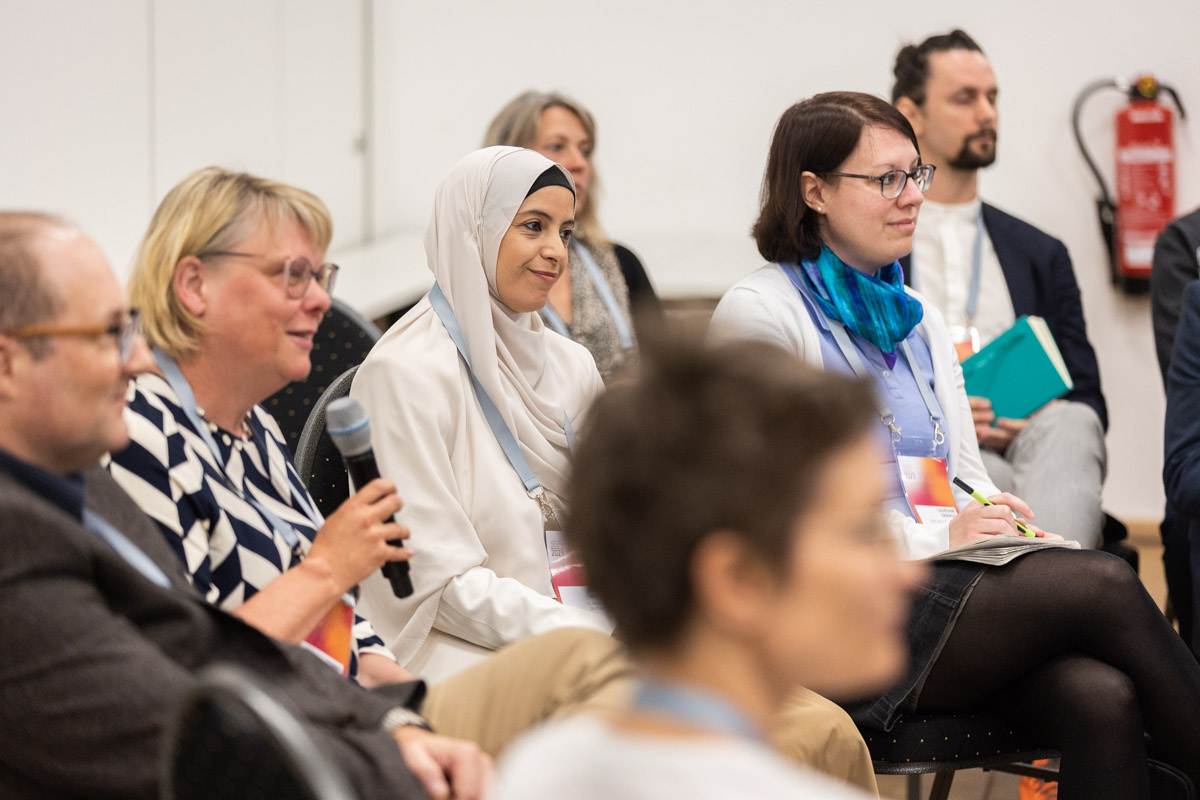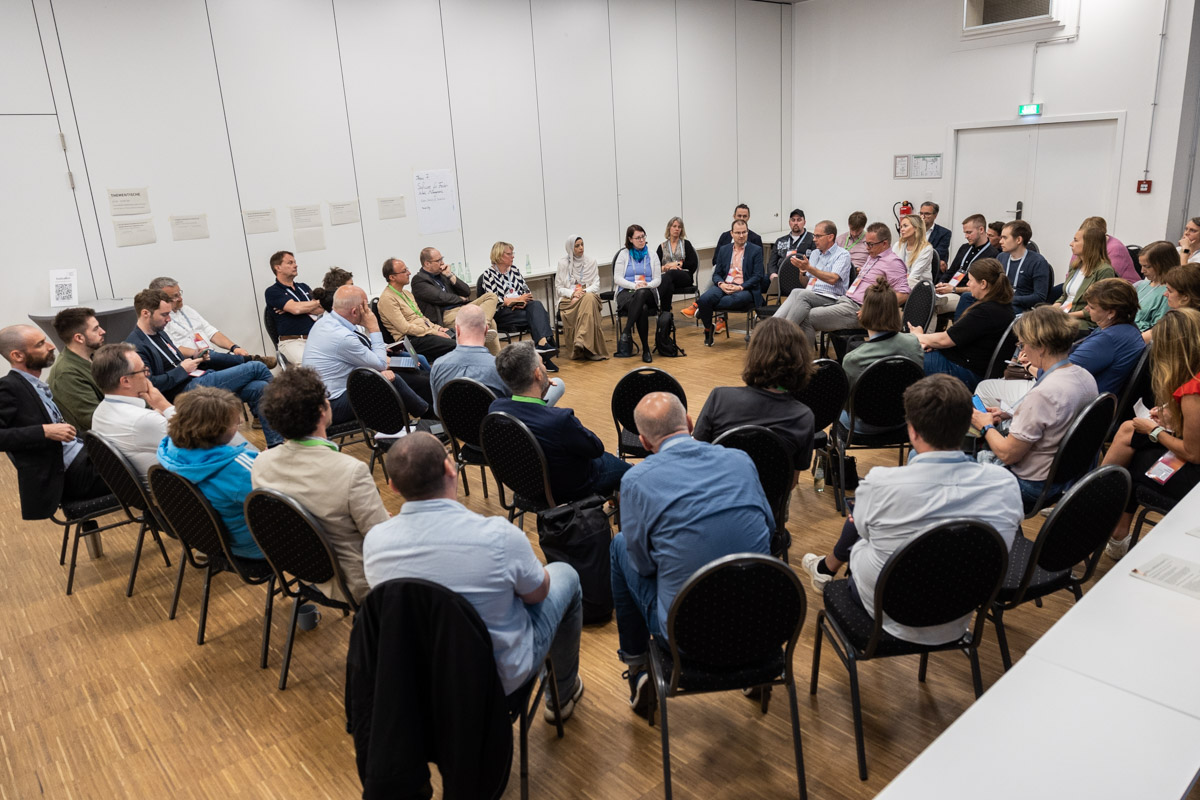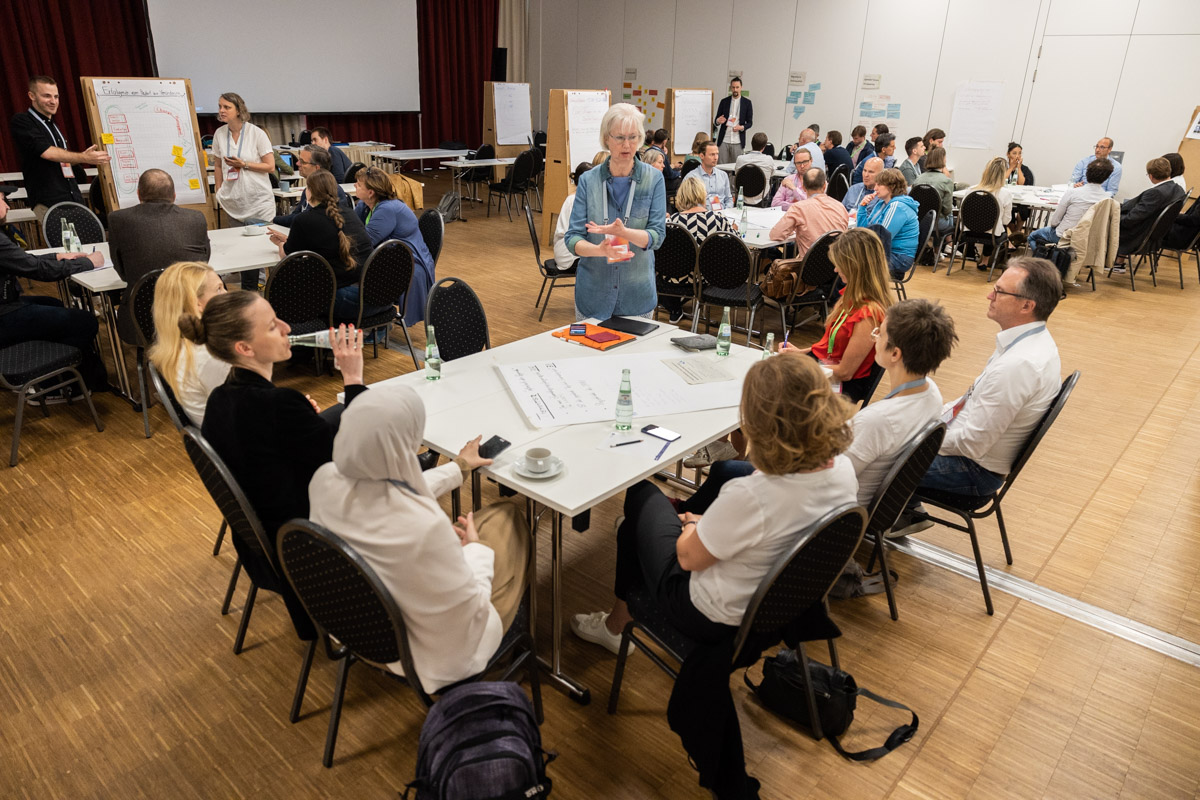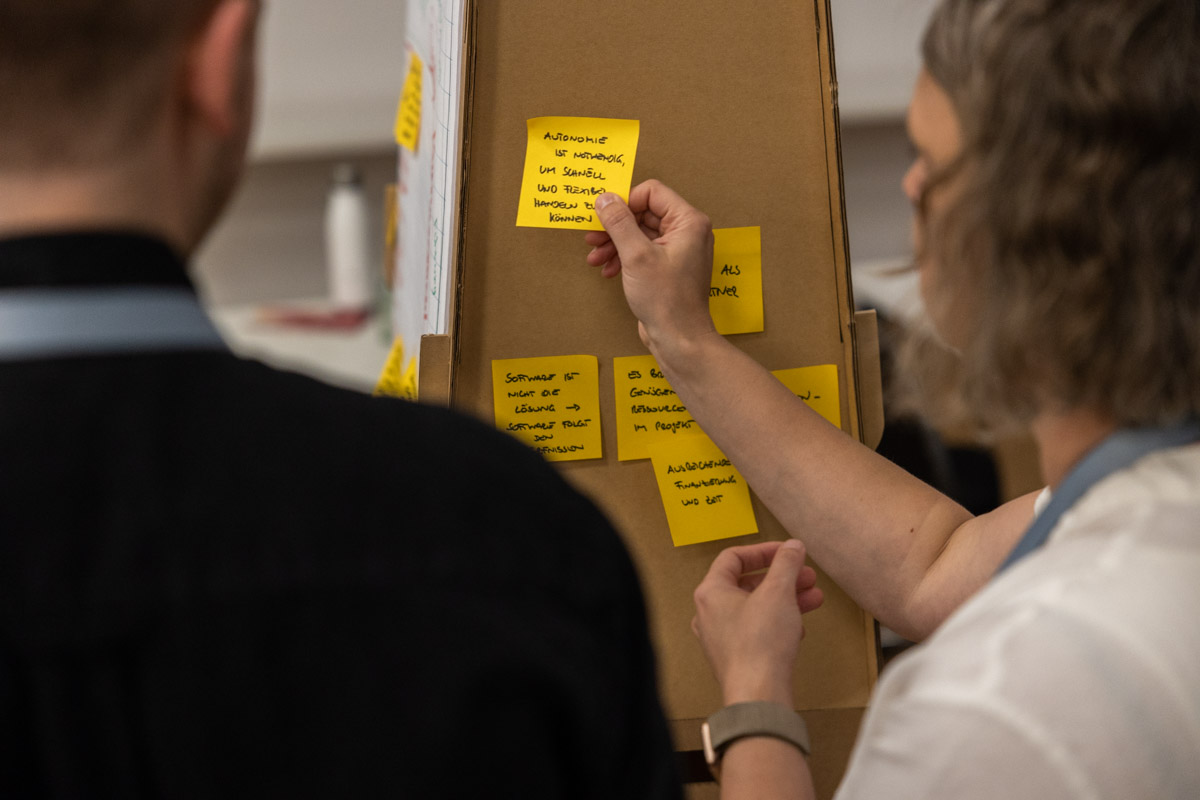Selection and implementation of a fundraising system
About stumbling blocks and success factors.
At the German Fundraising Congress 2023 in Berlin, we participated with the Ambit Group in the Data Management and Competence Day.
Currently, NGOs have to face the challenges of digitalization and reorganize themselves, especially in fundraising: strategically, in terms of processes/organization, and in terms of systems. Systems should remain in use for as long as possible. The acquisition for such a system is usually lengthy. The topic is very complex, as it is not only about the software, but also about the fundraising strategy, the processes, the change management and, in the end, a lot of money. The internal and external pressures on the organizations are accordingly high.
In the run-up to the symposium, expert group meetings of the Data Team had already taken place. In this format, we were able to share our experiences and gain insights from other system providers, consultants, but also from the organizations. We concluded that many experiences were similar - regardless of whether they were shared by the organizations themselves or by the service providers.
The common denominator?
Participants would have liked more information on project success factors in digitization projects before starting their own project.
Impressions from the symposium
Image source: German Fundraising Association
What are the key insights and success factors when implementing a fundraising system?
When preparing for a digitization project, organizations are usually very concerned with their requirements for the future system. It is important here to establish the planning of the project with the necessary stability, with a reliable budget and realistic schedule. The task of defining all relevant requirements in detail for a future system is a very challenging task. Here it is necessary to strike a balance between the two. The framework for the planned solution should therefore be as clear as possible so that fundamental strategic and architectural decisions can be made validly. The essential requirements should actually describe requirements and not functions. Today's software solutions offer various paths to the goal, so trying to describe functions that are unknown to you today is rather a hurdle.
Our recommendation on this: Entering into a collaborative scoping phase to jointly develop the project framework and identify potential cost drivers early on.
Our experience shows that naming the cost-driving aspects right at the beginning by making adjustments within the organization, reduces the complexity in the project and enables simpler solutions.
Platform or industry solution? Or is both even possible?
A modern fundraising system that meets the requirements of the organizations can be achieved in different ways. On the one hand, there are industry solutions and, on the other hand, so-called platform solutions (Microsoft).
Ambit Group is the partner for the Microsoft platform. We are convinced that organizations are optimally equipped to meet the challenges with platform solutions. Because, with this solution, the necessary scaling with simultaneous individualization is possible! The decision whether an organization uses a platform or industry solution is a strategic decision and should be made accordingly at the strategic level (not the functional level).
The Ambit Group's NPO Foundation, which is based on Microsoft Dynamics 365, provides functional modules that go beyond the standard Microsoft Dynamics 365 and address certain specifics of non-profit organizations: an optimal basis that allows to individually address the particularities of the respective organizations.
Realistic project budget
Thanks to many years of experience and clear communication in the run-up to the project, mutual budget expectations can be checked for realistic implementation. A digitization project of this magnitude represents a major investment for any organization.
At the same time, an agile approach, continuous readjustment in project management and appropriately targeted measures enable us to stay within budget.
We recommend our customers to build reserves for the project in order to be able to react to changes in the project. It often turns out after some time that internal resources are lacking to the extent planned and external solutions have to be sought.
Sufficient internal capacity and effective planning of resources
When planning the implementation of a new fundraising system, the focus shifts quickly to the costs of hiring the consulting and implementation partner. In the process, it is neglected that the project also ties up internal capacities. A system rollout is hardly feasible in addition to day-to-day business and should be effectively resourced accordingly.
Change Management – the key to project success
"Change! Change! Change!" It cannot be repeated often enough how important the topic of change management is for the successful implementation of a fundraising system. Helvetas elaborated this wonderfully in our collaborative video and interview about the changes such a project entails and how important it is to be ready for change.
The truth that almost no one wants to hear: realistic schedule
The implementation of a new system requires time and patience. A realistic schedule ensures that the project is moving forward in the right direction. Internal capacities should be realistically assessed and seasonal dependencies taken into account. Non-profit organizations in particular have times when the organization can hardly be available for the project and when a go-live is categorically impossible.
From current to future processes
The project serves to scrutinize current actual processes and define future target processes. The aim here is to retain established and well-functioning processes and to question and, if necessary, adapt previous ways of working. Those involved in the project often find it difficult at the beginning to abstract this and to imagine future processes in the new system.
As a rule, it is easy to describe how work is done today. Formulating how work will be done in the future, on the other hand, is a challenge.
At this point, it helps that we strongly involve our customers in the respective sprints and provide testable modules at an early stage. This allows those involved to get used to the new system on an ongoing basis and gradually expand their knowledge.
Even if it gets stormy: Stay on course
In projects of this complexity, it is natural that "ups and downs" occur in the course of the project. Our aim is to act as partners and on an equal footing with our customers right from the beginning. In this way, we want to find fair and sustainable solutions together, even in difficult project phases. For us, the prerequisite for such collaboration is to be seen as a strategic partner on the path to digitization.
"The right partner is more important than the software"
One statement made at the symposium is, of course, like music to our ears - "The right partner is more important than the software". Endless Excel lists that are supposed to evaluate our solutions in terms of features are part of our everyday life.
Yet the key to successful projects is collaboration and the right chemistry between the organization and the partner. We have a clear, strategic commitment to the NPO sector and operate with a sustained commitment to this important segment for us. This is also demonstrated by the fact that we are one of Microsoft's few German-speaking strategic partners in the NPO sector.
The sustainability and focus is reflected in our investment in our NPO Foundation. With the NPO & Education business unit, we can ensure that our employees know the requirements and industry-specific language of our customers. This makes us an exceptionally large team in the German-speaking region, even though the total number of employees is smaller than that of other partners.
We provide holistic support from consulting and conception to implementation and subsequent support in operation, with the claim of continuous development.
Further Information / Links
Don't miss any news!
We provide you with the latest knowledge on technological innovations and developments in digital transformation and on successful reference customers and go-lives.

Are you interested in this topic? I would be pleased to answer any queries you have.
Thomas Lewandowski, Business Unit Lead NPO & Education
thomas.lewandowski@!ambit-group.com
+49 151 22 94 88 63
